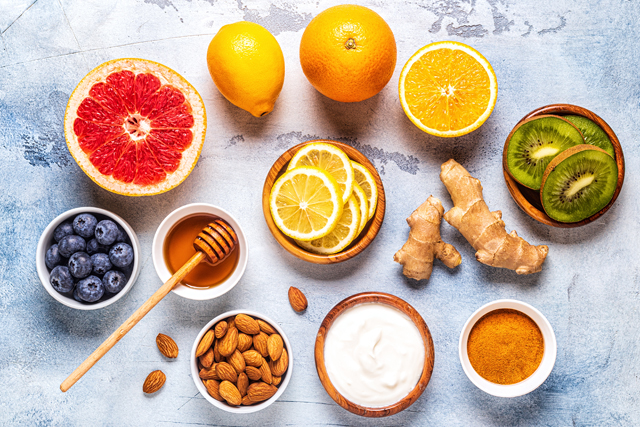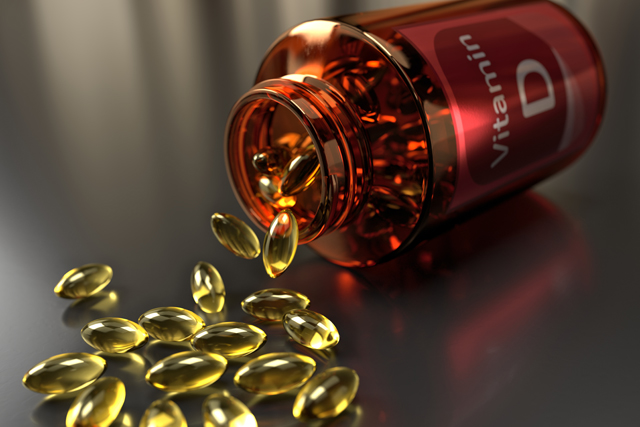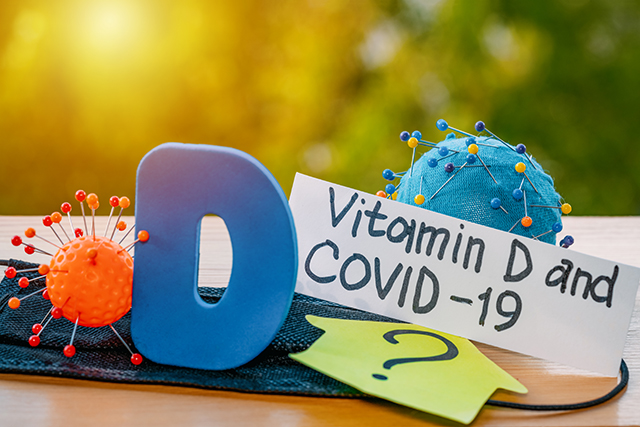Multiple studies have shown a correlation between severe COVID-19 symptoms and vitamin D deficiency. This relationship has researchers wondering if the regular supplementation of the “sunshine vitamin” can provide additional protection against COVID symptoms.
Vitamin D plays an essential role in maintaining healthy bones, teeth, and muscles. It helps to regulate blood sugar, the heart and blood vessels, and the lungs and airways, and also helps to support the body’s immune system. Vitamin D is unique in that it is mostly supplied by exposure to sunlight, and that it is not often found in sufficient quantities from dietary sources. Vitamin D deficiency or insufficiency is one of the most prevalent medical conditions in the world, affecting over 1 billion people.
Vitamin D and the Immune System

Even before COVID-19 changed our world, researchers had already identified that Vitamin D could play a role in fighting off respiratory infections. A 2017 meta-analysis of 25 studies and nearly 11,000 patients concluded that regular vitamin D supplements reduced the risk of acute respiratory infections.
One of the main immune functions of vitamin D is to help activate T cells in the body. T cells work to detect and destroy foreign pathogens—like viruses. This can lower the risk of contracting respiratory infections entirely and can help the body mitigate the worst symptoms of infections. Vitamin D may even play a role in preventing the development of autoimmune disorders through its role in keeping the immune system in balance.
Does Vitamin D Help Protect against COVID?
Epidemiological data that has emerged since the start of the pandemic in 2020 have indicated that low vitamin D levels may be associated with more severe COVID-19 outcomes. People 65 and older and people of color are more likely to have lower levels of vitamin D, and they both face a higher risk of poor outcomes from COVID-19 than the general population. There is also some evidence showing that countries at higher latitudes have higher COVID death rates than those closer to the equator, where there is more consistent year-round sunlight.
Although these observations remain far from conclusive, they have warranted further investigation into how the relationship between vitamin D and COVID. Multiple large-scale studies have already been conducted with varying results. A US study found that the risk of a positive COVID test was 2.64 times greater for Black individuals with low levels of vitamin D than for those with higher levels. However, another large-scale study has shown no evidence of higher vitamin D having a preventative effect in patients of European descent.
These inconclusive results are partly due to the varying impact of vitamin D across different ethnicities, populations, and individuals. Given the results of the latest large-scale studies, it is still uncertain if vitamin D plays a major role in preventing COVID infections or modulating symptoms. But for certain populations, vitamin D supplementation has proven to potentially be more beneficial.
Should I Supplement With Vitamin D?

Even without conclusive evidence that vitamin D can help treat COVID symptoms, supplementation can still be beneficial due to the vitamin’s role in healthy immune function, regulating essential bodily functions, and treating seasonal affective disorder.
Where you live, the time you spend outside, your sunscreen usage, and the amount of melanin in your skin can all impact vitamin D absorption. If you don’t get adequate sun exposure throughout the year, taking a supplement might be necessary. Be careful not to overdo it though: taking too much can result in kidney problems, kidney stones, or hypercalcemia, a toxic condition that results from too much calcium in the blood.
This is why it’s important to talk to your doctor before you begin adding new supplements to your routine. Are you looking to learn more about diet, nutrition, and alternative treatments to manage a medical condition? Sign up with Heally today, and book an appointment with a licensed physician to learn more about your options.

